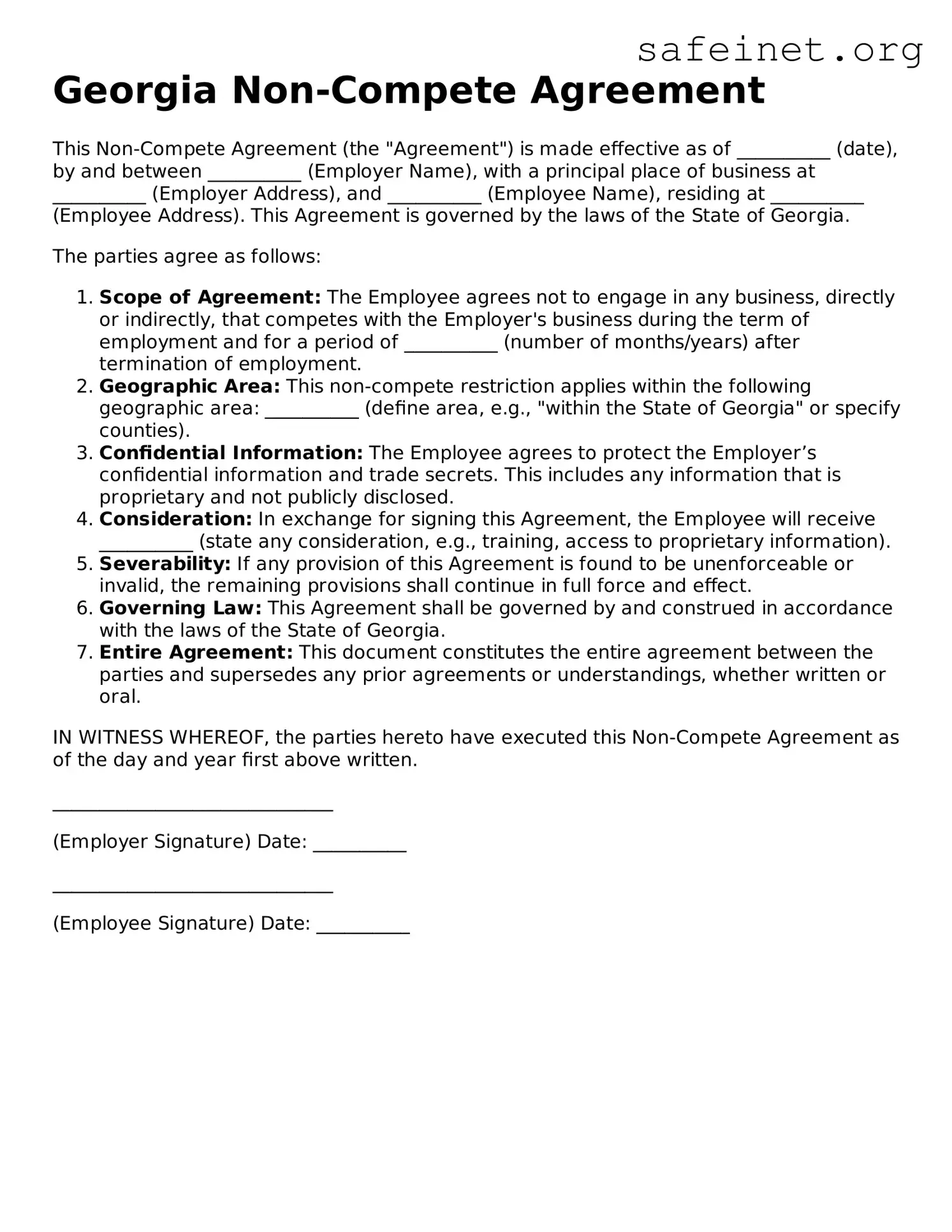What is a Georgia Non-compete Agreement?
A Georgia Non-compete Agreement is a legal contract between an employer and an employee. It restricts the employee from competing with the employer's business for a specific period and within a certain geographic area after leaving the company. This agreement is meant to protect the employer's business interests, such as trade secrets and customer relationships. The enforceability of a non-compete agreement in Georgia depends on various factors, including the reasonableness of the restrictions imposed.
What are the requirements for a valid Non-compete Agreement in Georgia?
In Georgia, a Non-compete Agreement must meet specific criteria to be considered valid. Firstly, it should be in writing and signed by both parties. The agreement must have a legitimate business interest that it aims to protect, such as customer relationships or proprietary information. Additionally, the restrictions on the employee's ability to work must be reasonable in scope, time, and geography. If any part of the agreement is deemed unreasonable, a court may choose to enforce only the reasonable parts or strike the entire agreement.
How long can a Non-compete Agreement last in Georgia?
The duration of a Non-compete Agreement in Georgia is not strictly defined, but it generally should not exceed two years. Courts have upheld agreements of shorter durations especially if they are justified by the nature of the business or the employee's role within it. Longer durations may raise questions about enforceability and could potentially lead to legal challenges.
Can an employee negotiate the terms of a Non-compete Agreement?
Yes, an employee can negotiate the terms of a Non-compete Agreement before signing it. It's important for the employee to understand the implications of the agreement fully. If the terms seem overly restrictive or unreasonable, discussing revisions with the employer may be beneficial. Seeking independent legal advice can also help clarify potential implications and assist in negotiations.
What happens if I breach a Non-compete Agreement in Georgia?
Breaching a Non-compete Agreement in Georgia can lead to serious consequences. If an employer believes that the employee violated the agreement, they may seek legal action. This could result in a court ordering the employee to cease competing, awarding damages to the employer, or imposing penalties. It's crucial for employees to carefully consider the terms of the agreement and consult legal counsel if they believe they are at risk of breaching it.
